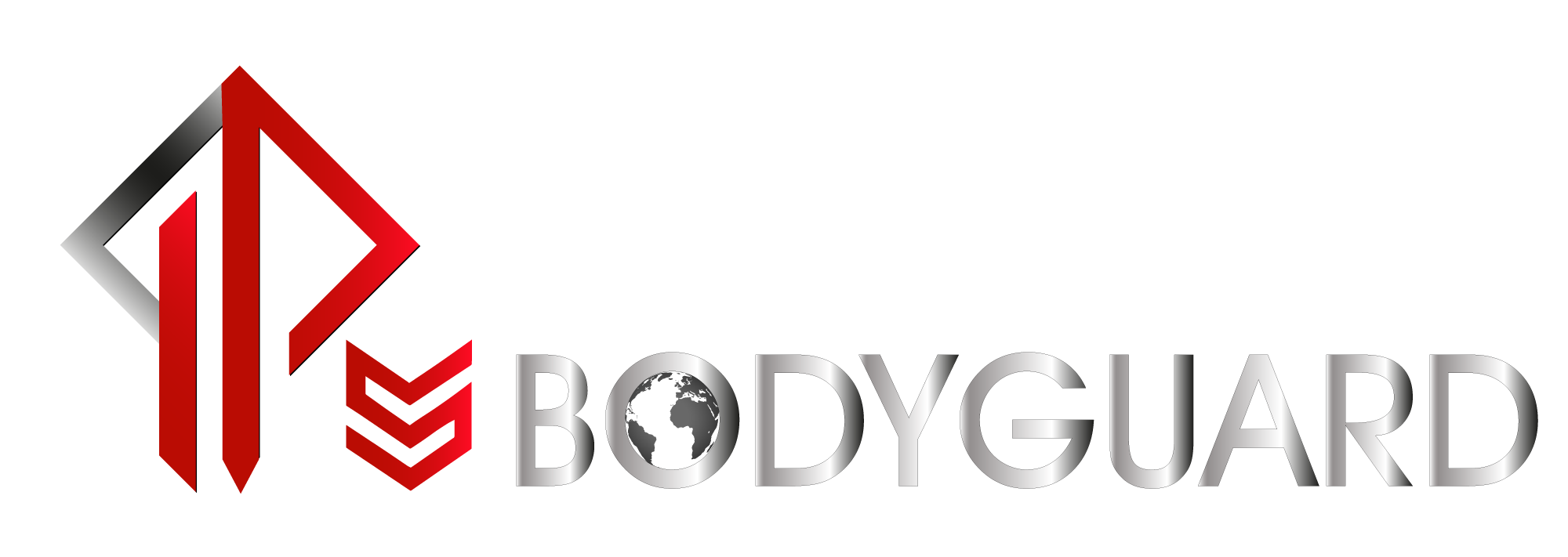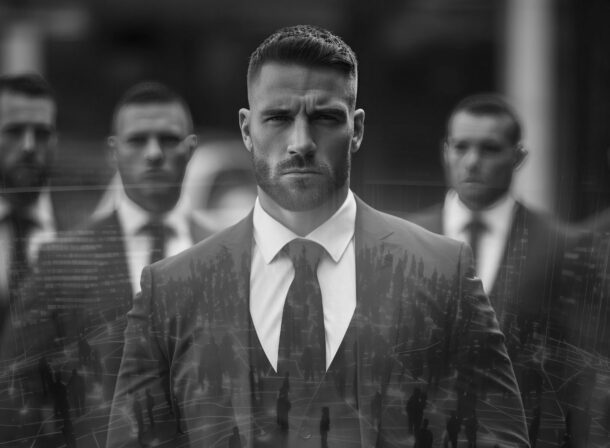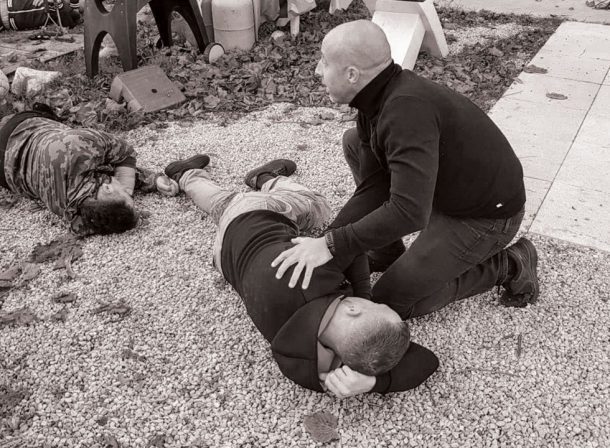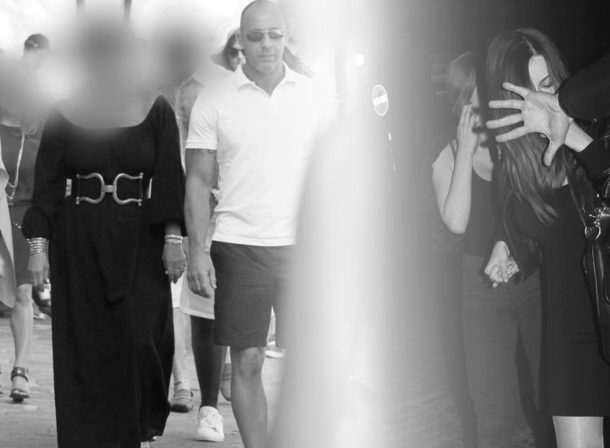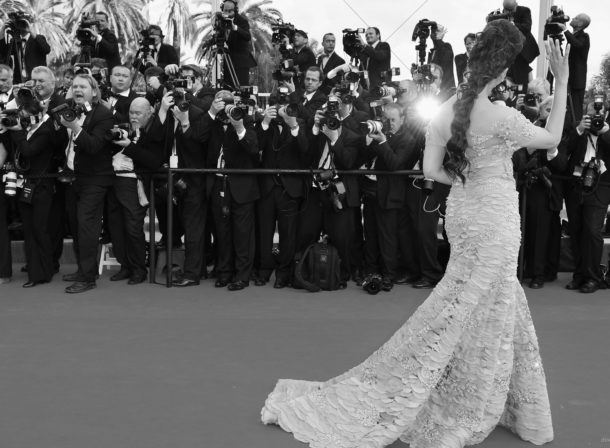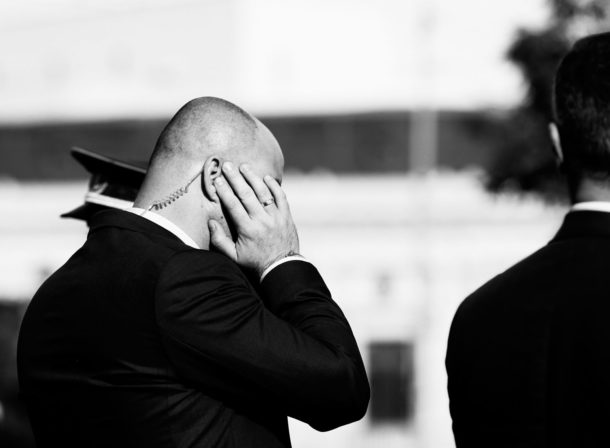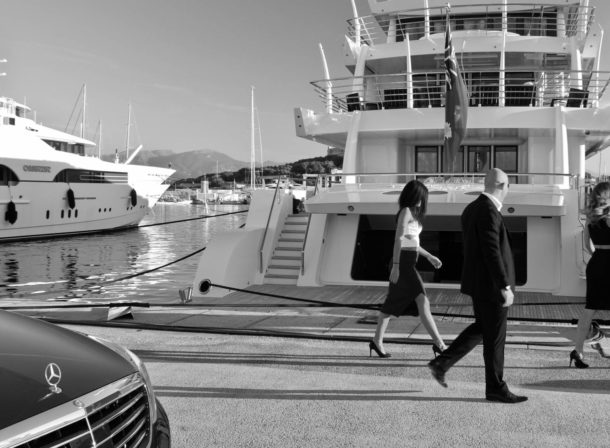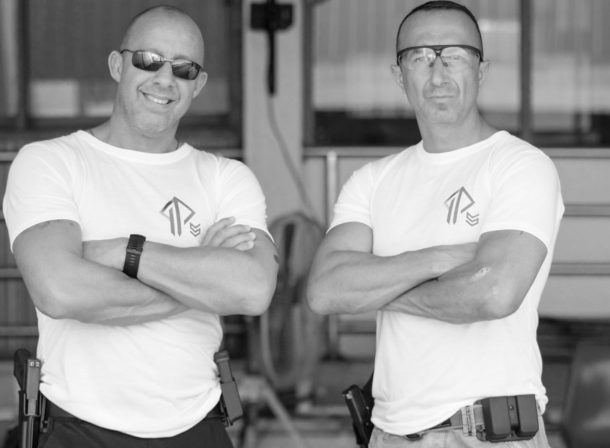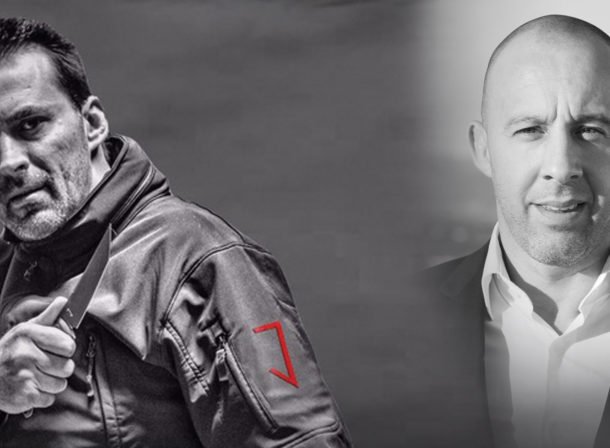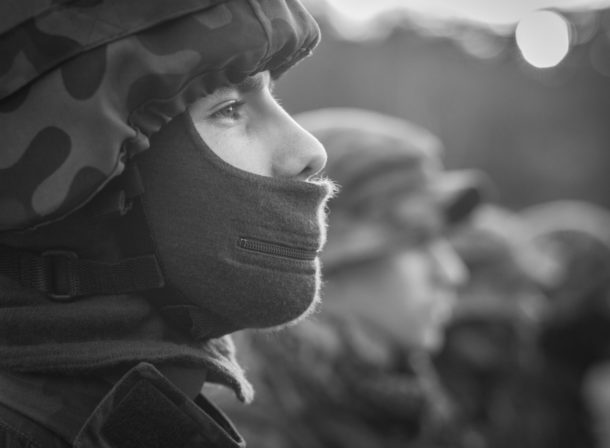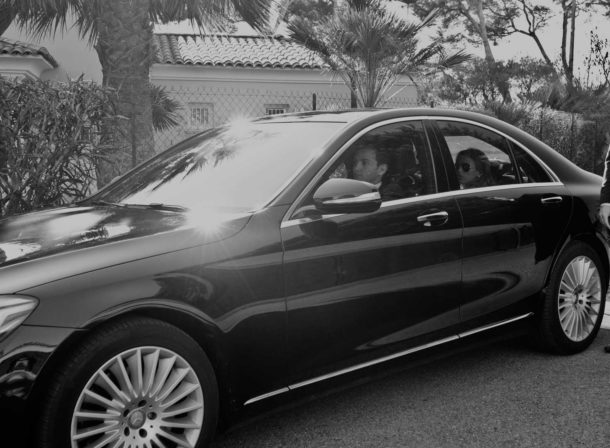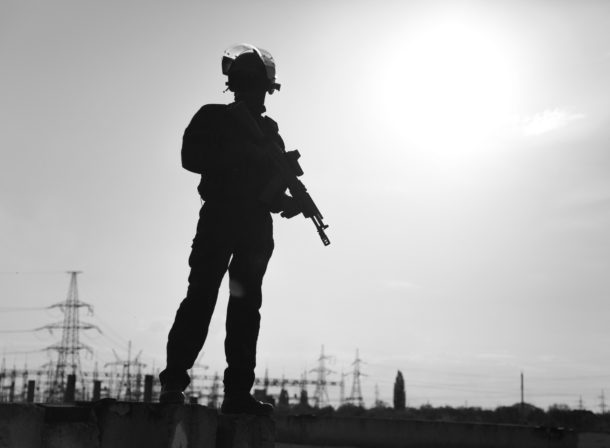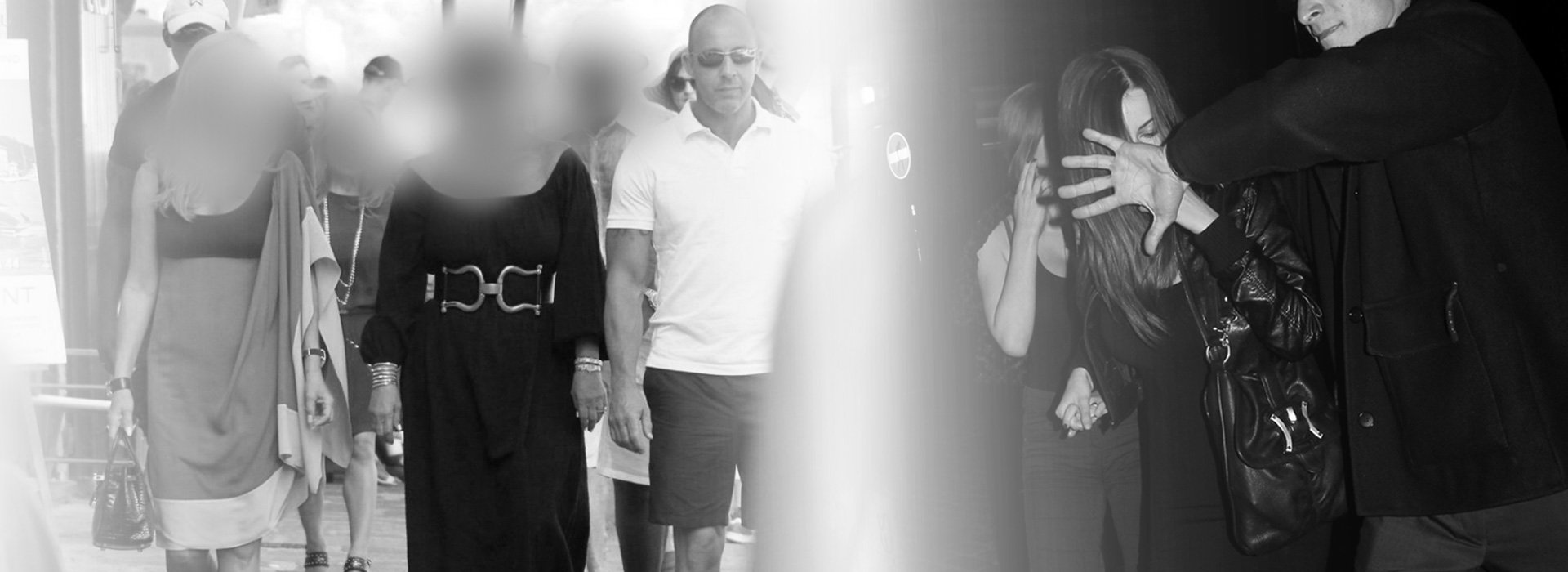
What is a bodyguard and what role does he play?
Written by Laurent Dequatremard, (founder and director of IPS BODYGUARD)
This article is not intended to be exhaustive.
A bodyguard (also called an Executive Protection Officer EPO or Close Protection Officer CPO) is a person (male or female) who handles security issues and organizes travel arrangements and logistic for another person (called the Principal). He can act alone or as a team; we will then talk about a Personal Escort Section (PES).
We must understand that, as is often the case, there is a difference between theory and practice. In order to offer optimal protection, the close protection company would like to have 5 or 10 officers but the client could think this is too much, can’t or be unwilling to set the budget for it. In some cases, it may happen that a single Executive Protection Officer has to protect several people at the same time. Officers will therefore have to constantly adapt to the situations they encounter.
The Client should not be confused with the Principal. The client is the one who pays the security company that employs the Close Protection Officer, and the Principal is the person to be protected. There are times, of course, or often for some people, that these two are one and the same person.
In a complete security system, teams are organized in the following way:
- 1 Team Leader (TL),
- 1 bodyguard dedicated to the Principal called Personal Protection Officer (PPO),
- Additional bodyguards (PES, CPO, EPO),
- Security drivers,
In addition, there may be:
- 1 to several Security Advance Party (SAP),
- An anti-spy technical team (in search of bugs, hidden cameras, GPS trackers),
- A team dedicated to explosives research and mine-clearing,
- Surveillance and tailing officers,
- Counter-surveillance, counter-tailing officers,
- 2-wheeled motorized officers,
- Officers specialized in tactical medic, technologies, mechanics…
The roles of each person (describe briefly for a general understanding):
The Team Leader prepares the mission (we will do a full article on how to prepare a CONOPS later), he organizes the structure, does the research necessary for the success of the mission, and communicates the information to the rest of the team. He is the privileged contact person for the client or the client's team.
The team leader is often in the system when small teams make trips, but he could be in a car or at the control room (at the Principal's residence for example).
The PPO is in direct contact with the Principal, he is the last shield of the team and it is his role to evacuate the Principal in case of an emergency. He never leaves the Principal alone.
The Principal provides him with information which he reports back to his team leader.
CPOs are trained to move about depending on the team structure and their position. The team is structured around the PPO; we are talking about various groups such as triangle, square, diamond, open V, closed V, etc.
The security driver is a full-fledged member of the system, and his role is essential for the good synchronization and structuring of the whole team. He prepares and gets to know the roads beforehand.
He drives in such a way as to permanently protect the car in which the Principal is seated, especially when he is driving a vehicle belonging to a convoy (lead car, following car…)
He is trained to drive at very high speed and has a good knowledge of evasive, avoidance and percussion techniques.
For example, he will be the external eyes of the officers when they are indoors with the Principal.
In terms of options, Security Advance Party are the officers who survey the area where the Principal is going to visit; anti-spy technical team searches for any listening or surveillance devices that could be placed in the area, and this team could be paired with a mine-clearing and explosive device search team; surveillance and tailing officers are there to collect information and observe from outside in a much wider circle than that of close protection; counter-espionage officers in case your team is tailing or being tailed by the other party, a threat, a terrorist just to name a few; motorcyclists for the obvious reason to ease movement but also to tail and counter-tail, for the speed of intervention on an attack (they are 2 on the motorcycle) among others and officers specialized in different areas according to needs knowing that all bodyguards have at least basic first aid knowledge though it may be requested sometimes by the client to have specialties such as advanced medical skills or mechanical skills for example or technological skills (eavesdropping, tracking, cybersecurity, etc.) depending on the missions.
The bodyguard's intrinsic qualities:
The Personal Protection Officer must have innumerable qualities! Besides his physical and technical skills specific to the profession, I could mention the following qualities: education, good manners, excellent presentation, discretion, diction, knowledge of languages, culinary, wine, politics, geopolitics, psychology and general culture, neutral in terms of judgments and the list is so long that one man can hardly possess all these values. However, the goal is to get as close as possible to them by working in the field, documenting themselves, being interested in the security industry, exchanging opinions, and through training.
He will have to be operational at all times and for this, a daily discipline will have to be imposed in the main areas mentioned above, namely physical condition, self-defense, handling of firearms, business world…
The areas of intervention of a Close Protection Officer
There are many reasons that can lead the client to hire a close protection officer. He may need to be escorted or he may just need to reinforce the security of his relatives or that of his belongings. In fact, the duty of a close protection officer is first and foremost to protect the client against the countless risks that may arise.
We may mention risks such as physical or verbal aggression, homicide, theft of property - of information or digital data - kidnapping, extortion, rape, terrorist attack… for specific reasons due to the life of the client or the Principal.
The close protection officer will be able to work in different contexts. For example, an officer might have to protect a model at the Paris Fashion Week where life is boisterous and hectic, and another PPO will have to ensure the safety of a wildlife photographer in Amazonia where the rhythm and noises of daily life will be those of nature.
He could also cross the Caribbean islands on a yacht or end up in a city in the Middle East where war is raging. Circumstances are numerous and sometimes so different that he will have to adapt constantly to new situations, places, threats, personalities, climates, cultures…
How much does a bodyguard earn?
It is difficult to define precisely how much a bodyguard earns. But the remuneration is often based on where the bodyguard has to go, on his personal experience and on his skills. The security company determines the level of dangerous nature of the mission through its risk assessment, will invoice the client and remunerate its officers accordingly.
The bodyguard's salary in the public service
Public sector bodyguards include police and military gendarmerie officers. Their remuneration corresponds to the salary scale of a police officer or gendarme, which is based on years of service and rank, to which bonuses can be added. Their salary generally varies between 2,000 and 3,500 euros per month.
The bodyguard's salary in the private sector
Most private sector bodyguards are employed by private security companies such as IPS BODYGUARD.
I think it is important to mention here that the security sector has suffered from very stiff competition over the last 20 years and that "contractors" who used to earn €12,000 to €15,000 a month (even more for some) are much rarer nowadays. In spite of the growing insecurity of this world, the fact remains that this service is often imposed on the client by works councils or insurance companies and therefore does not come first in the budgets.
Faced with this competition, it is important to understand that markets are difficult to enter and that companies with low standards offer their services at low costs and therefore pay their officers at a discount.
In order to make it more meaningful to our readers, we will talk here about daily wages, which is often the question that officers ask themselves. At IPS BODYGUARD the salary varies from €200 to €500 per day. The average being from €250 to €350. It also depends on the length of the day.
For an annual contract, the salary varies between €4,000 and €8,000 on average depending on the contract.
It should be recalled that at IPS, all ancillary costs are taken care of (Travel - Hotels - Restaurants).
I hope you found this article interesting. Please feel free to follow us on Instagram (ips_bodyguard) and subscribe to our newsletter (https://www.ips-bodyguard.com/media-ips/) to receive privileged information on our activities, our economic forecasts and to read our next articles.
You can share below this article with your friends and on your social media.
Laurent Dequatremard.

